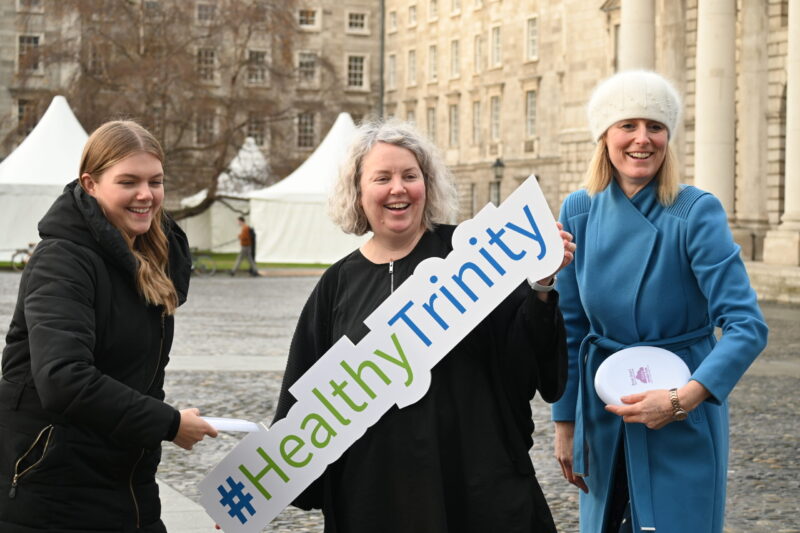Provost Linda Doyle has urged the government to increase investment in higher and further education for the benefit of public health, at the launch of Healthy Trinity’s first impact report.
The report outlines the work carried out by Healthy Trinity this year, including the results of research carried out as part of the project.
Healthy Trinity is a cross-College collaboration of more than 100 partners drawn from academic staff, professional services staff and students.
According to the report, 46 per cent of students believe they have good cooking skills, with 28 per cent regarding their skills as “poor” or “very poor”. The report recommended that “suboptimal practical food preparation skills, self-management and time-management skills of undergraduate students” be addressed.
The project’s healthy eating group has outlined the barriers to healthy eating on campus and the workplace group found that, though staff were resilient during the first lockdown in 2020, wellbeing was low.
Healthy Trinity also this year saw the introduction of College’s first-ever policy on misuse of drugs.
Speaking at the launch of the report, the Provost said: “Investment in education is investment in health. We urge government to increase investment in further and higher education as we know this improves public health and promotes health equity.”
“By the age of 30”, she said, “those with the highest level of education can expect to live four years longer than those with the lowest. Investment in education also alleviates the burden on health and social services and, most importantly, on the people who use them”.
Trinity College Dublin Students’ Union (TCDSU) President Leah Keogh praised the initiative at the launch, saying: “[One] great thing, about Healthy Trinity, I think, is partnership. In College we generally tend to work in silos, sometimes, and it’s a great example of student partnership, general partnership – the cross collaboration is unseen across any committee I sit on.”
“Healthy Trinity trends endeavours to alleviate all the barriers to wellbeing in that we face – nutrition, mental health, sexual health, physical health there’s so many to name and so it really is kind of all inclusive, and there’s wider barriers to education, and well being, then, by proxy”, she added.







